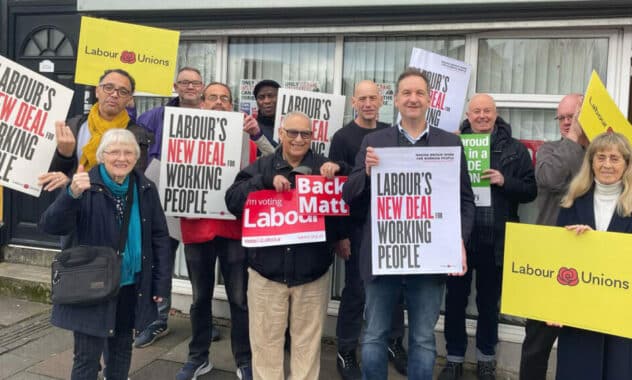More than one in ten insecure workers given less than one day’s notice of hours
Workers are receiving less than 24 hours' notice of when they will be expected at work.

More than one in ten people in insecure employment are given less than 24 hours’ notice of the hours they will be expected to work, new research has revealed, introducing significant strain on their finances and personal lives.
This is according to new figures from the Living Wage Foundation, which found most insecure workers were unable to plan more than a few weeks ahead.
Insecure workers were defined as those having too few hours, having no guarantee of the amount of work and pay they will receive, being forced into temporary work when they wanted a permanent job, or being in low-paid self-employment.
Over two-thirds (68%) of insecure workers were given less than four weeks’ notice of their working hours and nearly half (49%) were given less than two week’s notice.
More than two in five workeres (42%) then experienced further disruption when their shifts were unexpectedly cancelled. Of these, 90% did not receive full pay, and 28% were not compensated at all.
Over one in three (35%) workers experienced negative impacts on their finances as a result of this volatility, while 40% felt less able to plan their work and personal lives, and nearly a quarter (23%) were forced to pay expensive childcare costs due to being called into work at the last minute. a similar number (25%) experienced higher travel costs as a result of short notice notification of their hours.
The Covid-19 pandemic worsened this uncertainty, with almost half of people in insecure work losing work during the crisis, compared with less than one in five workers in higher quality employment.
Of the 3.7 million people in insecure employment, 46% lost work at the height of the Covid-19 pandemic, compared with 17% of workers in secure work and earning at least the real Living Wage of £10.85 per hour in London, and £9.50 outside of London.
Graham Griffiths, Director of the Living Wage Foundation, said: “Insecure work has been a consistent feature of the labour market over the past twenty years. The result is millions of people unable to get the hours and the pay they need to meet their everyday needs, with many families throughout the UK struggling to keep their heads above water.
“Over the past year this problem has been exacerbated, with many low-paid workers in insecure jobs also more likely to lose work. There is a real danger that as we look to recover from the huge damage of the pandemic, we fail to recognise the vital need for an economy built on jobs with decent pay and secure hours. This is what we need for a modern, dynamic economy that delivers stability to workers, families and businesses.”
A new Private Members’ Bill drafted by IER Chair, Lord John Hendy QC, seeks to remedy this widespread issue by replacing the UK’s overcomplicated three-tier employment status system with a universal status of ‘worker’. This would ensure that all people in employment have equal access to workers’ rights, effectively abolishing insecure work by providing insecure workers with the power to negotiate with their employers without fear of dismissal.







